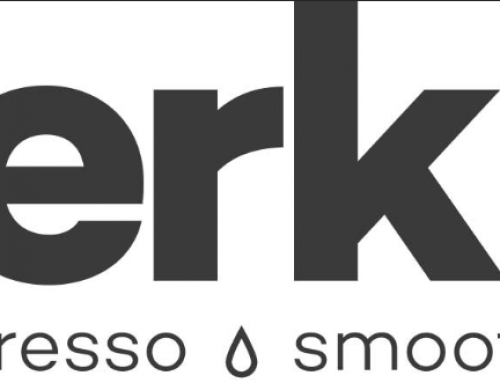
We live in times of high demand. It’s not just the hospitality industry that’s struggling to recruit employees. Far from it. Every single person I know in the search and recruitment industry is phenomenally busy, and good candidates are harder than ever to come by. But finding them is relatively easy, compared with acquiring their services for your business.
The process of hiring great people has much art to it, and much science. I’m going to share a number of blog posts addressing many of the steps in attaining, and retaining great talent to your organisation. I’ll also share some tips for job seekers on how to find and choose the right company, in a time of abundant job opportunities.
Hiring Process
Let’s start with the importance of the hiring process. This is not marginal gains stuff, this is mission critical. A weak, poorly thought out of executed hiring process means top talent goes elsewhere. You get to choose from what’s left. You make a hire, but it’s a compromise, think of the opportunity cost of always hiring from the B pool. It’s astronomical.
It seems obvious but so few people do it. Put yourself in the shoes of a potential employee. Or think about if you were having to find a job, rather than hire someone. What would your impressions of a company be if their hiring process was confused, chaotic, repetitious, vague, long-winded, too easy, too fast, without substance, or any of these things? Would you have a good impression of the company? How it’s run? How working there is likely to be? Would you join if you were an A-Player? Not likely. Now if you were a B or C player, desperate for a job…… any port in a storm!
Let me be clear, when you are interviewing candidates, you are being judged. It is and should be a two-way process, you have to do some selling and creating of the right impression too.
In general, and yes, I’m aware that exceptions abound, but in general there are two types of organisations, and this is why they fail so often in the hiring process stakes
- Corporations and established companies. Often hiring has become an administrative function. Carried out by bored administrators (this is NOT HR bashing, there are many outstanding HR teams, leaders and departments, the blame lies with the C-Suite). Basically, hiring is internally outsourced to people ill trained or equipped or informed about the role and requirements, and who are seldom equipped to ‘sell’ the organisation or role. Hiring is allied to growth, therefore hiring is a strategically important process, not admin.
- Start-ups & Scale-ups. The two major risks here are that due to founders/leaders being so busy, the hiring process is squeezed in here and there, it’s chaotic and passed around like a hot potato. The other issue I see a lot, and I have been there myself as a founder, is that the founders feel that their ‘baby’ is the most beautiful baby in the world, no other baby comes close, and anyone that doesn’t see that must be crazy, or it’s an insult to my baby! We’ll you may well have an awesome mission, product, culture and benefits. But you’re not alone. Many companies have. And top candidates ALWAYS have a choice.
So, what does ‘good’ look like?
Is this hire strategically important, does growth and success depend on getting it right? Then make sure you get the best people involved for the task in hand. Those whose enthusiasm for the company shines through, those who can ‘sell’ the opportunity and the company, and those who can be an objective judge of a candidate’s merits (Please don’t just hire clones of the founders or yourself, but that’s a whole other blog).
Before you even start the hiring process have these things very clear in your mind and in your plan.
- A well written and defined job description (how else will you know what you are looking for, or will the candidate know what’s expected of them)
- A clear idea of what ‘success’ looks like for this hire. Looking back in 18 months how will you know whether the hire was a success? What will they need to have achieved, what milestones? What will the company/department look like? If you’re not clear on what you want them to do in order to be a success, how will you know you got it right? How will the candidate know?
- A clear idea on who will be involved in the process, at what stage and why? Who is best equipped to interview for each area of skills, personality, and experience? Co-ordinate in advance. Don’t just have a handful of people interview and all ask the same sort of questions. All you’ll find out is if you collectively like the person or dislike the person. No basis for making a hiring decision alone.
- A clear idea of timeline. A hiring process should take ideally no more than 2-4 meetings and no more than 4 weeks. Of course, things can arise, but your goal should be 4 weeks. Imagine if you interview a superstar candidate in week one, then try to ‘keep them warm’ for weeks on end, without communication, and whilst you muddle on. What impression does that create? In today’s market will they still be around?
- Be clear on salary and benefits. Two reasons, you don’t want misaligned expectations, to go through a full process, get to make an offer and then realise you are way off in alignment with the candidate. What happens more often though is companies get to the offer stage and then try to make up a package on the go, which delays the critical stage of the process (giving bad impressions) and risks you making bad decisions which may have big impact later on. If you low-ball someone they will likely reject, or join under a cloud, if you overpay, you create future problems for the existing team and when hiring again. Have a clear package range in mind, pay as much as you can afford to get the right person, but not more than you can afford or than makes sense. Think these things through objectively in advance, not emotionally when you get to the end of a hiring process.
- Have offer letter and contracts ready in advance. Don’t make a verbal offer and then have to take days, or weeks, to get offers and contracts to the candidate. Again, think of the impression you create, also of the risk. If you think you’ve secured the perfect candidate but haven’t ‘signed the deal’ what’s to stop them looking for or being approached for other roles whilst you’re delaying and creating a bad impression. Don’t snatch failure from the jaws of success.
These are just some of the critical factors I recommend you take on board. Now clearly, I would recommend having a professional partner support your hiring processes. I doubt you write your own legal contracts or do your own accountancy. Is the right talent as important, or more important to your success than these issues? Of course, a bad contract or bad accountancy can both kill your company, so can bad hires. Use experts!
At Hyperion Executive Search we have a 29-step hiring process. Details matter. Process matters. It’s art and science. Getting the right talent on board matters most of all.
I’d welcome any feedback, or if you have any questions, happy to answer online, or via a DM. Alternatively reach out to one of my team.
David Hunt



